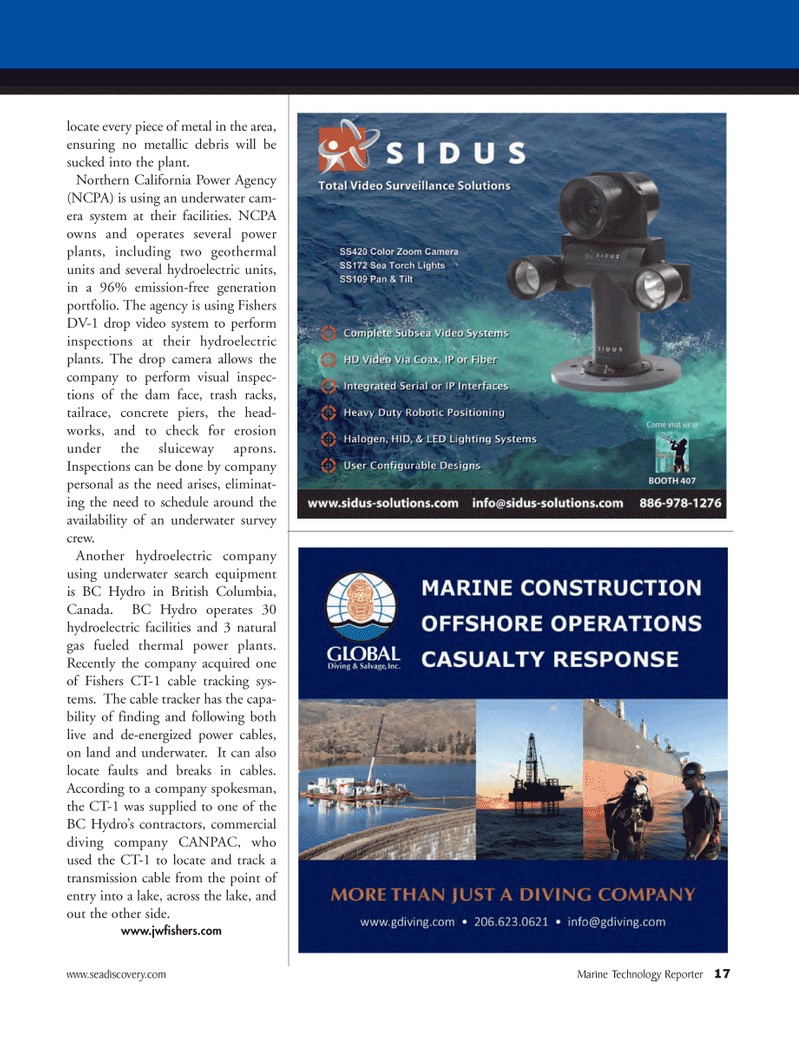
Page 17: of Marine Technology Magazine (January 2012)
Offshore Inspection, Repair & Maintenance
Read this page in Pdf, Flash or Html5 edition of January 2012 Marine Technology Magazine
locate every piece of metal in the area, ensuring no metallic debris will besucked into the plant. Northern California Power Agency (NCPA) is using an underwater cam- era system at their facilities. NCPA owns and operates several power plants, including two geothermalunits and several hydroelectric units, in a 96% emission-free generation portfolio. The agency is using Fishers DV-1 drop video system to perform inspections at their hydroelectric plants. The drop camera allows the company to perform visual inspec- tions of the dam face, trash racks,tailrace, concrete piers, the head- works, and to check for erosion under the sluiceway aprons. Inspections can be done by company personal as the need arises, eliminat-ing the need to schedule around the availability of an underwater survey crew. Another hydroelectric company using underwater search equipment is BC Hydro in British Columbia, Canada. BC Hydro operates 30 hydroelectric facilities and 3 natural gas fueled thermal power plants. Recently the company acquired one of Fishers CT-1 cable tracking sys- tems. The cable tracker has the capa- bility of finding and following both live and de-energized power cables, on land and underwater. It can also locate faults and breaks in cables. According to a company spokesman, the CT-1 was supplied to one of the BC Hydro?s contractors, commercial diving company CANPAC, who used the CT-1 to locate and track a transmission cable from the point of entry into a lake, across the lake, and out the other side.www.jwfishers.com www.seadiscovery.com Marine Technology Reporter 17MTR#1 (1-17):MTR Layouts 1/4/2012 7:38 PM Page 17

 16
16

 18
18
